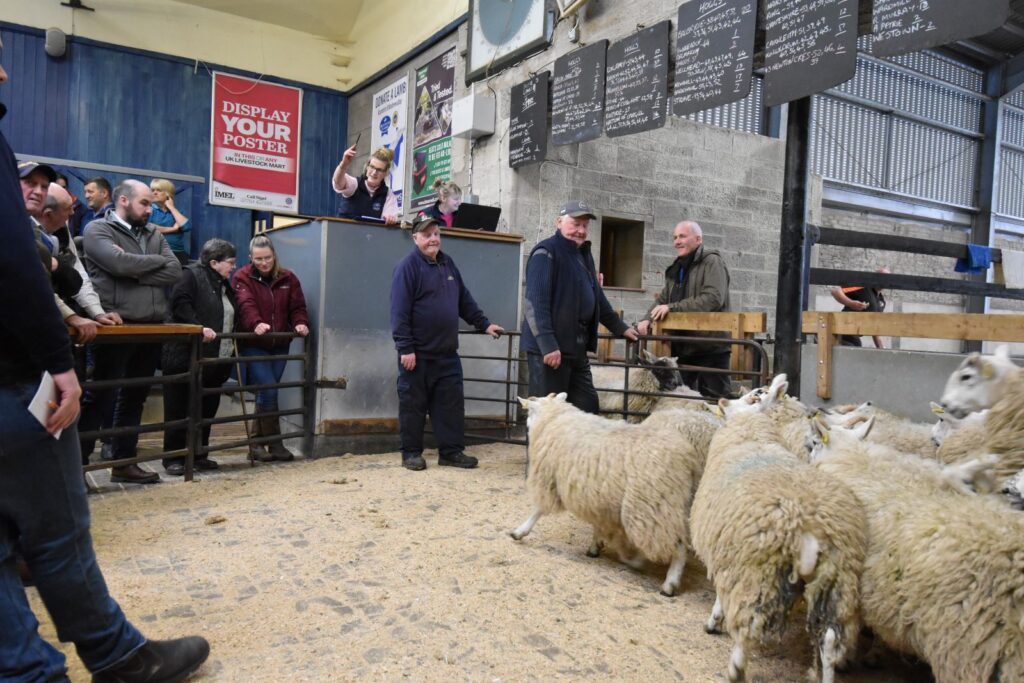Neil Wilson from IAAS calls for support for auction marts in the wake of Forfar Mart closure
13th May 2023
Following the closure of longstanding Scottish auction mart Forfar, Neil Wilson, executive director of the Institute of Auctioneers and Appraisers in Scotland (IAAS), highlighted the critical role auction marts play

Following the closure of longstanding Scottish auction mart Forfar, Neil Wilson, executive director of the Institute of Auctioneers and Appraisers in Scotland (IAAS), highlighted the critical role auction marts play in the livestock sector and called on officials to think carefully about support for farming businesses.
In a statement, the directors of Lawrie & Symington, the current owners of Forfar Mart, revealed the market was forced to close due to a continued reduction of livestock marketed through Forfar, with cattle numbers this year down 30%.
“Although we have identified other potential revenue streams for Forfar, the market’s main income source must be from livestock sales commission and current throughput numbers, coupled with ever-increasing operating costs, are not sustainable.
“The Directors note the loyalty of their Forfar customers, both sellers and buyers and continue to thank them for their support.”
Responding to the news, Neil Wilson of IAAS pointed out the harsh reality facing auction marts across the UK, which have played a crucial role in the farming economy and are an important part of the social and rural fabric of Scotland.
‘Whilst rising livestock prices have helped offset some of these cost increases, the reality of ever-tightening cattle and sheep numbers means that many marts face pressure trying to grow numbers of animals going through the ring. In turn, putting downward pressure on incomes whilst cost inflation keeps eating away at margins,’ he said.
Mr Wilson explained marts are critical when it comes to the marketing of livestock and machinery, as they offer a ‘collaborative, transparent, price discovery marketing mechanism through the live ring.’ Traditionally, willing sellers and buyers have come together to freely trade and walk away if the price isn’t right.
‘There are very few other sectors who now have the beauty of this system, instead being at the will of major retailers as they are tied into challenging integrated supply chains. See the poultry, egg and pig sectors (and soon to be dairy sector again) for the dangers of this approach,’ he warned.
Marts also ensure livestock can get to market at critical times of the year, which helps promote good animal welfare. Moreover, auction marts support the clear traceability of animals via Scot EiD, something that has been an increasing focus for members of the supply chain following recent revelations.
Last but not least, marts serve as a central meeting point offering farmers the opportunity to network, exchange knowledge and meet members of the local community, which helps offset isolation.
In fact, recent reports published by the Prince’s Countryside Fund and the University of Exeter highlight the critical role marts play in supporting farmer health and encouraging those who are struggling to seek help.
To prevent further colures, Mr Wilson urged all farmers to make use of their closest livestock mart and help promote the viability of local farming supply chains.
‘This closure of a longstanding Scottish auction mart in the Cabinet Secretary’s own constituency should serve as a warning to politicians and officials of the need to think very carefully about support for the farming sector and its supply chain businesses,’ he added.
‘An increased pace in that thinking would also help build confidence across the sector and help ensure a healthy and thriving rural economy – not risk more closures and placing more pressure on farm businesses already facing tough decisions on all areas of their business management,’ Mr Wilson concluded.


